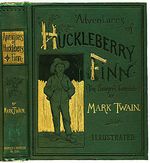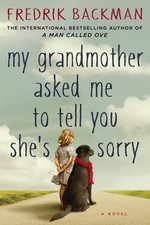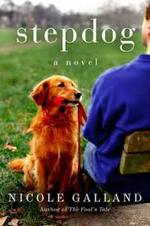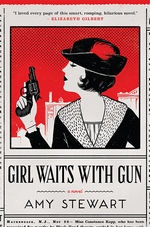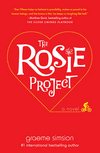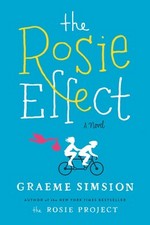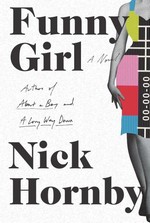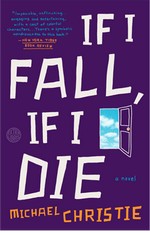I’m hitting another block when trying to talk about the last few books I’ve read, because here’s another batch of very overdue takes on some good books (and one not).
—
by Graeme Simsion
Series: Don Tillman, #1
Hardcover, 304 pg.
Simon & Schuster, 2013
Read: November 6, 2013
This was charming, witty, and had plenty of heart — even without the romance, which just took it all to another level. It was just plain fun to read.
Don Tillman is just a great character — he’s likely someone with Asperger’s, if not fully Autistic. Which is mentioned once or twice, and then not brought up again. He’s then treated as a stubborn, curious, character with behavior patterns no one can seem to understand, but most people in his life figure out hot to cope with. Sometimes they laugh at him, sometimes they get frustrated or angry. What he’s not treated as is someone with anything. He’s not treated by his symptoms, he’s just treated as this guy. Simsion’s treatment of Don reminds me of Abed Nadir, from Community (which is high praise from me).
The only complaint I had was that the last chapter wasn’t really needed, and maybe would’ve been best left to the imagination. But, setting that aside, it felt rushed, while the rest of the book was so well done, it just stuck out like a sore thumb.
Still, whatever — one of my favorite books of 2013, and still one of the best RomComs I can remember.


by Maria Semple
Hardcover, 330 pg.
Little, Brown and Company, 2012
Read: January 01 – 02, 2014
Do you get seasick? People who don’t get seasick have no idea what it’s like. It’s not just nausea. It’s nausea plus losing the will to live.
I should get that embroidered on something.
This starts light and breezy, a little strange, a little typical “these crazy (white) suburbanites with too much money”; but you know it’s going to get dark eventually — probably nasty dark, but first it’s going to lull you into a false sense of fun. I don’t think it gets as dark as it felt like it could’ve, it didn’t need to, and I’m glad it didn’t — but there was a whole lot going on that the whacky beginning didn’t indicate.
You don’t have care about the story because these characters are strength enough to carry your attention for quite awhile with nothing happening — and Semple’s style is just as strong. But there is a story here, a story of a daughter discovering just who her mother was — as is — a story about a talented woman who ended up loving a life she’d never have expected or picked for herself or her family. So you do care about the story — especially the way it’s told, in bits and pieces, jumping back and forth through time, from multiple perspectives — particularly when you get two or three perspectives painting a picture of an event — as Bee digs into her investigation.
Fun story, quirky characters, well-told story, with plenty of heart — and too many quotable lines. I jotted down a few that I can’t resist sharing, even in this abbreviated post.
You probably think, U.S./Canada, they’re interchangeable because they’re both filled with English-speaking, morbidly obese white people. Well, Manjula, you couldn’t be more mistaken.
Americans are pushy obnoxious, neurotic, crass — anything and everything — the full catastrophe as our friend Zorba might say. Canadians are one of that. . . To Canadians, everyone is equal. Joni Mitchell is interchangeable with a secretary at open-mic night. Frank Gehry is no greater than a hack pumping out McMansions on AutoCAD, John Candy is no funnier than Uncle Lou when he gets a couple of beers in him. No wonder the only Canadians anyone’s ever heard of are the ones who have gotten the hell out. Anyone with talent who stayed would be flattened under an avalanche of equality.
Really, who wants to admit to her daughter that she was once considered the most promising architect in the country, but now devotes her celebrated genius to maligning the driver in front of her for having Idaho plates?”


by Graeme Simsion
Series: Don Tillman, #2
Hardcover, 352 pg.
Simon & Schuster, 2014
Read: January 12 – 13, 2015
“To the world’s most perfect woman.” It was lucky my father was not present. Perfect is an absolute that cannot be modified, like unique or pregnant. My love for Rosie was so powerful that it had caused my brain to make a grammatical error.
Don and Rosie are living in New York, getting used to married life, and expecting a kid. None of which goes well — so, of course, Don tries to tackle things the same way he did in the last book. Instant sequel, just add water.
This sequel was written with the same wit and skill as The Rosie Project, but the story wasn’t there — and more importantly, neither was the heart.
Mostly, I think, because Rosie wasn’t around for a lot — and when she was there, she wasn’t a character, she was an obstacle.
Other than really liking the occasional line (maybe more than occasional), I just didn’t like how Rosie or Don were written, the plot was shoddy and contrived, and I was just glad to be done with it so I could move on.


by Nick Hornby
Hardcover, 452 pg.
Riverhead Books, 2015
Read: February 7, 2015
How on earth could he love her? But he did, Or, at least, she made him feel sick, sad, and distracted. Perhaps there was another way of describing that unique and useless combination of feelings, but “love” would have to do for now.
Everything I know about this era of British culture and TV comes from The Hour and An Adventure in Space and Time, so I just have to trust that Hornby did his homework on this. I thought the behind-the-scenes stuff was great, it felt real — it felt like the kinds of conversations that writers and actors should be having anyway.
The love story turned out a lot different than I was sure it would – thankfully. Actually, most of the book did. This wasn’t the rags-to-riches-to-wreck story that it seemed like it was going to be, but a story of some people with dreams and talent doing what they could to get going in a cutthroat business. Dreams were chased, many were caught, others changed/grew — as did the dreamers.
In the midst of the discussions about the nature of their show and the stories they told — both during the making of the show Barbara (and Jim) and in later chapters where it was being looked back at, I kept wondering if tucked away in all that was an apologia for light fiction like Hornby writes? If so, I appreciated it. (it also reminded me of some similar comments John Cleese has made lately, after coming to terms with being someone who makes people laugh, and not saving the world or something grander)
Thoughtful, heartfelt, charming — this is Hornby at his most confident and mature. I can see why some aren’t liking it, but it really clicked for me.




